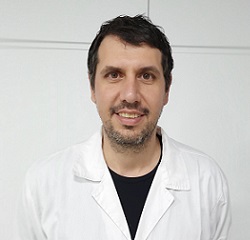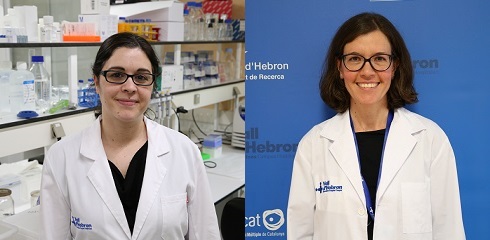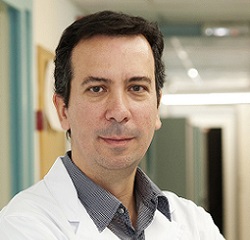5 existing drugs that could be used for Covid-19
<p>Five research projects in the BioRegion of Catalonia are investigating how to take advantage of therapies already in use for other diseases to treat Covid-19. They have received funding from the Catalan Ministry of Health to study this new path towards a possible cure to the pandemic. Let’s look at what they’re working on.</p>

The Catalan Ministry of Health announced this April that it has earmarked €4 million to fund 19 research projects at IRISCAT centers to prevent and treat the Covid-19 disease, chosen through an emergency call promoted by the Department of Research and Innovation (DGRIS), with collaboration from Biocat and the Agency for Health Quality and Assessment of Catalonia (AQuAS). Plus, Biocat will provide technical support for the projects. They are 19 different ways of fighting the disease, and five of them propose repositioning existing therapies, meaning they are studying whether drugs already being used or researched for other diseases could also be of use to Covid-19 patients. This post looks at their proposals.
Inflammation as key to treatment
Xavier Solanich (Bellvitge University Hospital) proposes to treat Covid-19 through a clinical trial on two drugs that suppress the immune system, already approved for other indications. They will be tested on 84 patients with acute pneumonia caused by Covid-19 and elevated inflammatory markers.
 And why attack inflammation? Scientists have seen that acute pneumonia caused by SARS-CoV-2 is due in part to a disproportionate inflammatory response. This could, therefore, be improved by administering existing immunosuppressants like methylprednisolone, which is currently used as an antiinflammatory drug and to treat allergies, and tacrolimus, currently used to prevent organ rejection in transplants. Plus, in cell models, tacrolimus has been shown to curb growth of several coronaviruses, including the previous SARS-CoV. Both drugs are affordable and easy to produce on a large scale.
And why attack inflammation? Scientists have seen that acute pneumonia caused by SARS-CoV-2 is due in part to a disproportionate inflammatory response. This could, therefore, be improved by administering existing immunosuppressants like methylprednisolone, which is currently used as an antiinflammatory drug and to treat allergies, and tacrolimus, currently used to prevent organ rejection in transplants. Plus, in cell models, tacrolimus has been shown to curb growth of several coronaviruses, including the previous SARS-CoV. Both drugs are affordable and easy to produce on a large scale.
“We think that, after 7-10 days, the virus triggers a big inflammatory response. In fact, doctors are already using drugs to block this inflammatory response, corticosteroids and cytokine inhibitors, but in some cases it isn’t enough and these drugs are expensive and not always readily available on the market. In a clinical trial, we are testing a drug that has been on the market for many years and inhibits the immune system. It has also been proven to inhibit the virus’ ability to multiply,” says Xavier Solanich, principal investigator for the IDIBELL group carrying out the study.
The clinical trial aims to study how long it takes for patients hospitalized with acute pneumonia due to Covid-19 to stabilize after starting on methylprednisolone and tacrolimus. “We’re choosing very serious patients, so we’ll probably have results in just a few weeks,” concludes Solanich.
Living human lung tissue to accelerate research
Maria José Buzon and Meritxell Genescà, of the Vall d’Hebron Research Institute (VHIR), are leading a study that aims to test on human lung explants (living tissue) various antiviral drugs already proven in other studies to block the main entryway of the SARS-CoV-2 into human cells.
 Lauric acid and some of its derivatives have been described as powerful inhibitors of a wide variety of viruses with viral envelopes. SARS-CoV-2 could be susceptible to lauric acid, a concept that has been shown in previous in vitro studies. So, the project aims to assess the effects of lauric acid and its derivatives on blocking entry of SARS-CoV-2 and other coronaviruses in lung-tissue models. The low toxicity in humans of lauric-acid derivatives and its affordable price make this strategy highly attractive for a broad spectrum of coronaviruses.
Lauric acid and some of its derivatives have been described as powerful inhibitors of a wide variety of viruses with viral envelopes. SARS-CoV-2 could be susceptible to lauric acid, a concept that has been shown in previous in vitro studies. So, the project aims to assess the effects of lauric acid and its derivatives on blocking entry of SARS-CoV-2 and other coronaviruses in lung-tissue models. The low toxicity in humans of lauric-acid derivatives and its affordable price make this strategy highly attractive for a broad spectrum of coronaviruses.
“As it will be a human lung-tissue model, we hope our results will be much more physiological and can be transferred quickly to clinical practice,” explains Meritxell Genescà, one of the researchers leading the project.
Blocking the virus from entering cells
Researcher Manuel Portero of the Biomedical Research Institute of Lleida (IRBLleida) is leading a project to block the virus from entering cells by targeting what is known as its cell-invasion mechanism. How? The idea is to identify potential drugs targeting ACE2, a protein in the cell membrane that is a key gateway for the SARS-CoV-2 coronavirus. To do so, they will test several drugs that affect this protein, regulating its production or activity.
“We want to stop the virus using drugs already authorized for use in humans with a process called therapeutic repositioning. We will study many drugs and new molecules based on the DNA of this gateway to find out which one or ones are the best at preventing the virus from entering our cells,” highlights Portero.
The study will have two phases. First, repositioning drugs authorized for other diseases, looking to inhibit the ACE2 protein. And the second phase of the project will test two new therapeutic strategies to eliminate this protein: small nucleotide chains that impede ACE2 from synthesizing inside the cell, and another approach that will design peptides that can bind specifically to ACE2 and eliminate it.
Cancer antibody could be the solution
Repositioning an antibody initially designed to treat cancer in order to activate the immune system of Covid-19 patients. This is the focus of the project led by Joan Seoane of the Vall d’Hebron Institute of Oncology (VHIO) to attack the virus that causes Covid-19.
 “We’ve found that some tumors are able to escape the patient’s immune system using a mechanism, a protein called LIF, so they can grow without being attacked by the immune system. We’ve also seen that there are viruses that use the same system; they use the same LIF protein to evade the patient’s immune system,” explains Seoane. “In recent years, we’ve developed drugs that eliminate LIF, blocking the immunosuppression system, and reactivate the immune system to fight to tumor. We think these same drugs could be effective with Covid-19, eliminating LIF, reactivating the immune system against the virus and curing the patient.”
“We’ve found that some tumors are able to escape the patient’s immune system using a mechanism, a protein called LIF, so they can grow without being attacked by the immune system. We’ve also seen that there are viruses that use the same system; they use the same LIF protein to evade the patient’s immune system,” explains Seoane. “In recent years, we’ve developed drugs that eliminate LIF, blocking the immunosuppression system, and reactivate the immune system to fight to tumor. We think these same drugs could be effective with Covid-19, eliminating LIF, reactivating the immune system against the virus and curing the patient.”
The project will identify whether SARS-CoV-2 is one of the viruses that uses LIF (immunosuppressive molecule) to evade detection by the immune system. If it is, LIF could be attacked with a blocker drug, so the patient’s immune system could detect the virus and attack it, stopping infection.
In previous studies, the laboratory had developed an antibody that attacks LIF in tumors (MSC1), which is already in clinical trials. So, if they confirm SARS-CoV-2 uses LIF, they will test whether MSC1 is also effective in Covid-19.
3D computer models to simulate drug actions
3D computer models and cell trials can be used for mass analysis of possible drugs to block SARS-CoV-2 from entering the cell. Jana Selent, a researcher at the Hospital del Mar Research Institute (IMIM) is leading a project based on these techniques to find a cure to Covid-19.
“To boost the success rate and chances of finding an effective drug, we will use a two-pronged strategy: first, we’ll look for drug candidates that block a specific region of the virus that it uses to adhere to the host cell,” highlights Selent. “We also intend to inhibit a second key element in the cell membrane that helps the virus get in. We will use the newest computational methods to identify drugs and for molecular characterization of drug candidates.”
The project will look for drugs that block SARS-CoV-2 from entering the cell using two strategies: (1) preventing the S protein from binding to the ACE2 receptor in the cell, which lets it in, and (2) inhibiting another protein (TMPRSS2 protease) on the cell membrane, which is involved in helping the virus enter the cell. Researchers will do a first assessment of the possible drug candidates using 3D computational experiments to do computer simulations of the action of drugs approved for use in humans under normal conditions. Then, the goal is to validate the most promising drug candidates in cells.


